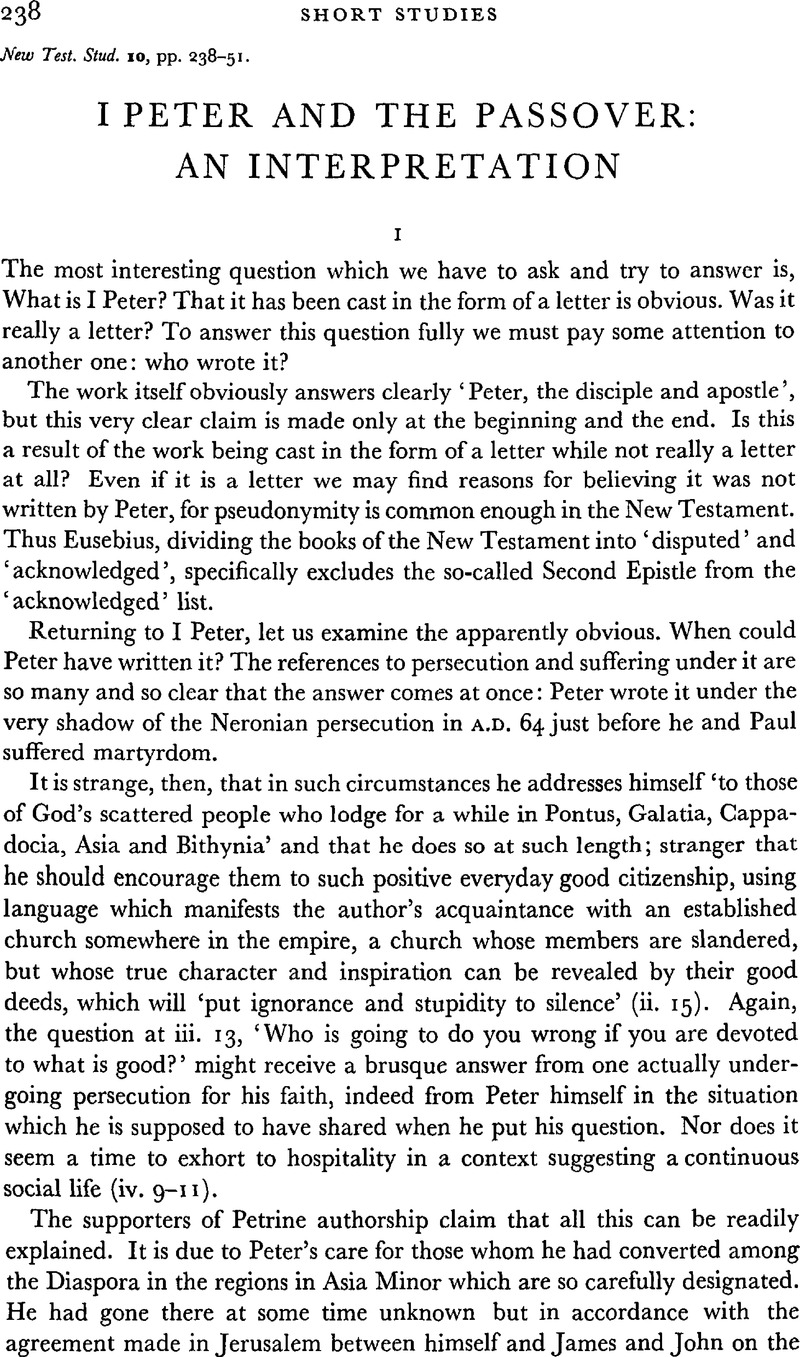No CrossRef data available.
Article contents
I Peter and the Passover: An Interpretation
Published online by Cambridge University Press: 05 February 2009
Abstract

- Type
- Short Studies
- Information
- Copyright
- Copyright © Cambridge University Press 1964
References
page 240 note 1 i. 12 refers to those who evangelized the addressees apparently as a third party in relation to the author and these addressees.
page 243 note 1 For example, Perdelwitz, Bornemann, Streeter.
page 244 note 1 Thus emphatically Moule, C. F. D. in N.T.S. iii, 1 (Nov. 1956), 4, when criticizing F. L. Cross.Google Scholar
page 245 note 1 N.T.S iii, 1 (Nov. 1956), 1 ff.Google Scholar
page 245 note 2 J.T.S. xii, 1 (n.s.) (April 1961), 14 ff.Google Scholar
page 245 note 3 The Haggadah. A New Edition with English Translation (Soncino, 1959).Google Scholar
page 245 note 4 Pp. 104 ff.
page 250 note 1 Christians could well protest their political innocence, that they are δίκαιοι; he may show his entire innocence to the universe. He is ό δίκαιος.
page 250 note 2 It is as though, when he came up out of the waters, the heavens opened, and a voice said, ‘This is my beloved son’.
page 250 note 3 N.T.S. iii, 1.
page 250 note 4 Mark xiii. 11 pars.


